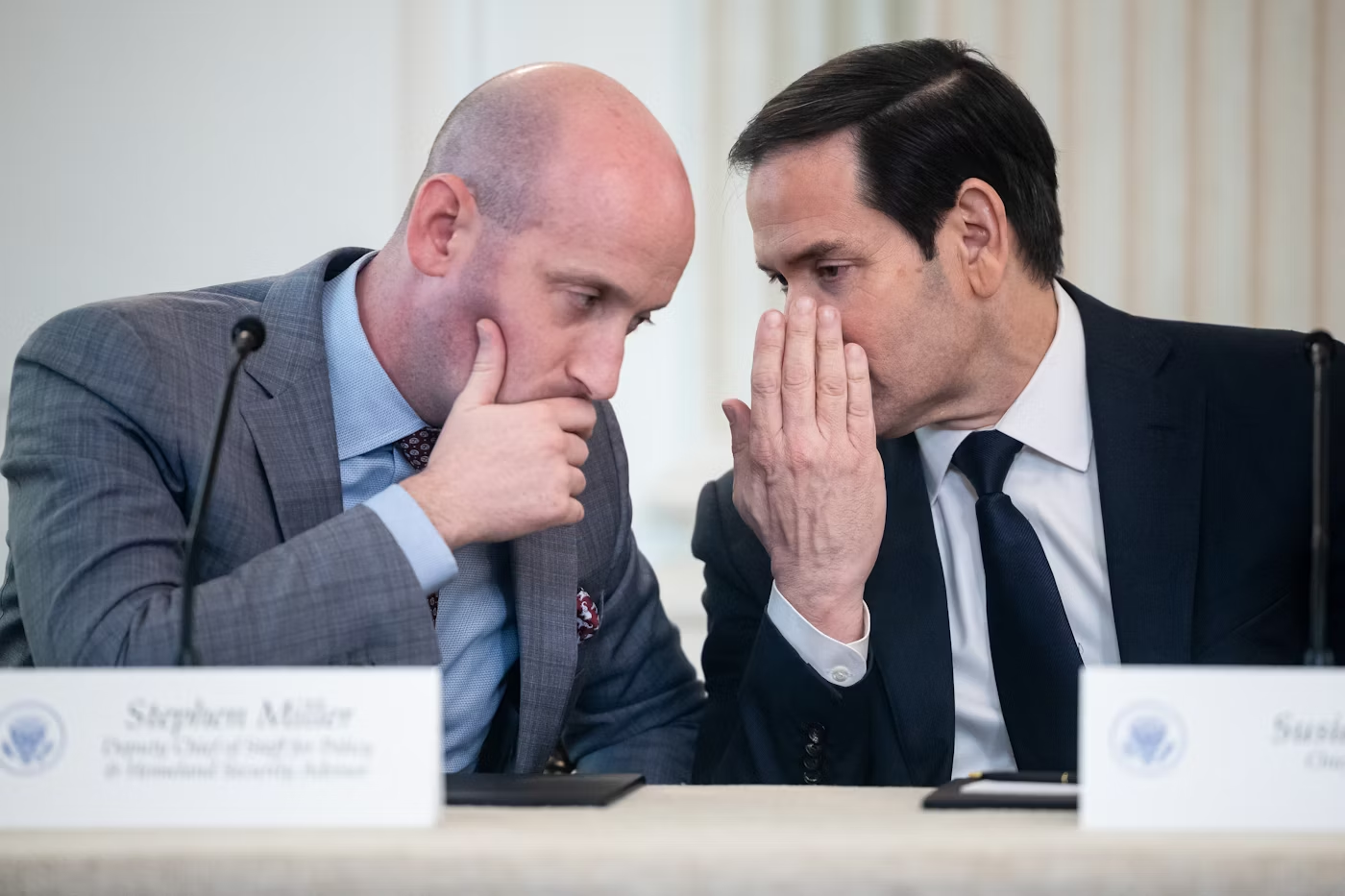
A new alliance between Secretary of State Marco Rubio and Deputy Chief of Staff Stephen Miller has been at the center of President Donald Trump's increasingly aggressive actions against Venezuela, according to three people familiar with the internal discussions.
POLITICAL
The two senior officials, who previously disagreed on how combative to be with the Venezuelan government, have united around the current no-holds-barred approach to combating drug trafficking, the people said. All were granted anonymity to speak freely about sensitive conversations within the Trump administration.
That's a major victory for Rubio, who has long advocated for increasing political and economic pressure to force Nicolás Maduro out. Miller had previously been seen as more focused on keeping relations with Venezuela stable enough to ensure the country would accept deportation flights from the United States. One of the people said that since the summer, Miller has adopted the perspective of Rubio and the Venezuelan opposition: that Maduro is a dangerous drug lord.
The seven U.S. military attacks in international waters off Venezuela, which have killed dozens of people the United States accuses of involvement in drug trafficking, represent the most provocative displays of force against the Maduro regime to date.
There was conventional wisdom early in the administration that Marco Rubio was sidelined and that the State Department might not be in the driver's seat. And that's clearly not the case with regard to Venezuela policy, said Benjamin Gedan, who worked on South America policy at the Obama administration's National Security Council. It's been really striking to see an increase in tensions with Venezuela, and it's really hard to explain it apart from Marco Rubio's influence.
Miller and Rubio are now moving in unison on Venezuela, the three people said. Both are on the same page about the U.S. government approaching the South American petrostate as something similar to a transnational criminal group, said another of the people familiar with the discussions.
Together, they have managed to marginalize a third group: those who want to preserve some access for Big Oil to the petrostate's vast energy reserves and, more generally, normalize relations with Caracas. That group had pushed for diplomatic engagement with Caracas. Now, many in that corner are resigned to the idea that Trump will hit Venezuela hard.
That leaves few voices in the administration that can argue against further escalation toward Venezuela in the coming months. The administration has already said it would consider attacking cartels on Venezuelan soil, and Trump confirmed Thursday that he had authorized intelligence agencies to conduct covert operations in the country, apparently to further destabilize the Maduro regime.
One of the highest-profile members of the third camp is special envoy Richard Grenell, whom Trump told to halt diplomatic outreach to Caracas earlier this month.
It appears we're at a point now where the misfit toys have been put in their place and the administration is moving full speed ahead, said the second person familiar with the discussions, listing Grenell and energy magnate Harry Sargeant III, who has connections to the Trump administration, as the misfit toys.
White House officials have repeatedly downplayed suggestions that there was once much daylight between the different schools of thought within the administration and its orbit on Venezuela.
With the support of his entire administration, President Trump is fulfilling his promise to confront the cartels and eliminate these national security threats that kill more Americans, White House spokeswoman Anna Kelly said.
The White House maintains that it's Trump who is driving policy toward Venezuela, and none of the people POLITICO spoke with who were familiar with the discussions would go so far as to say that Rubio, who is also acting national security adviser, is the primary agenda-setter. But his philosophy is certainly influencing policy decisions.
We'd all like a magic wand when it comes to getting our way in foreign affairs; at this juncture, Marco Rubio may have found his, said former U.S. ambassador to Panama, John Feeley.
Grenell and Sargeant did not respond to requests for comment.

